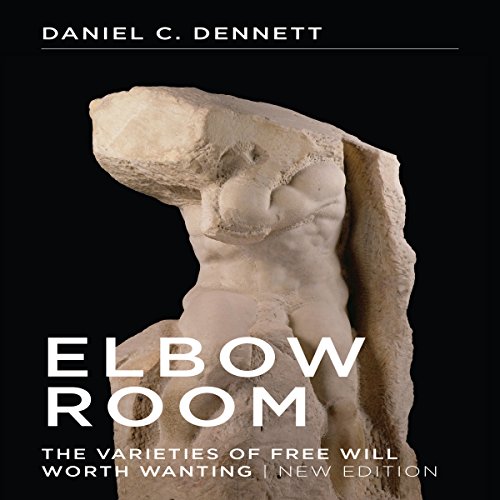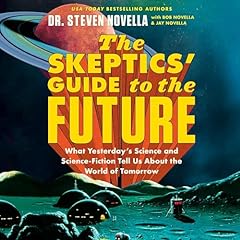
Elbow Room
The Varieties of Free Will Worth Wanting
No se pudo agregar al carrito
Add to Cart failed.
Error al Agregar a Lista de Deseos.
Error al eliminar de la lista de deseos.
Error al añadir a tu biblioteca
Error al seguir el podcast
Error al dejar de seguir el podcast
Obtén 3 meses por US$0.99 al mes
 Exclusivo para miembros Prime: ¿Nuevo en Audible? Obtén 2 audiolibros gratis con tu prueba.
Exclusivo para miembros Prime: ¿Nuevo en Audible? Obtén 2 audiolibros gratis con tu prueba.
Compra ahora por $30.08
-
Narrado por:
-
Don Hagen
-
De:
-
Daniel C Dennett
In this landmark 1984 work on free will, Daniel Dennett makes a case for compatibilism. His aim, as he writes in the preface to this new edition, was a cleanup job, "saving everything that mattered about the everyday concept of free will while jettisoning the impediments". In Elbow Room, Dennett argues that the varieties of free will worth wanting - those that underwrite moral and artistic responsibility - are not threatened by advances in science but distinguished, explained, and justified in detail.
Dennett tackles the question of free will in a highly original and witty manner, drawing on the theories and concepts of fields that range from physics and evolutionary biology to engineering, automata theory, and artificial intelligence. He shows how the classical formulations of the problem in philosophy depend on misuses of imagination, and he disentangles the philosophical problems of real interest from the "family of anxieties" in which they are often enmeshed - imaginary agents and bogeymen, including the Peremptory Puppeteer, the Nefarious Neurosurgeon, and the Cosmic Child Whose Dolls We Are.
Putting sociobiology in its rightful place, he concludes that we can have free will and science, too. He explores reason, control and self-control, the meaning of "can" and "could have done otherwise", responsibility and punishment, and why we would want free will in the first place. A fresh listening of Dennett's book shows how much it can still contribute to current discussions of free will.
This edition includes as its afterword Dennett's 2012 Erasmus Prize essay.
©1984, 2015 Daniel C. Dennett (P)2015 Gildan Media LLCLos oyentes también disfrutaron:




















Reseñas de la Crítica
Las personas que vieron esto también vieron:











Two Elbow Room Books
Se ha producido un error. Vuelve a intentarlo dentro de unos minutos.
Boy was I let down. The author try’s way to hard to fill his pages with really big words. It takes him a whole chapter to ramble on about what could easily be expressed in a few sentences.
I’ve been listening to it for 3.5 hours now and I can’t tel you a single point that has been made.
The narrator almost whistles with ever s sound.
It is free after all. So I’m not so disappointed.
But I was for sure let down.
You will be disappointed
Se ha producido un error. Vuelve a intentarlo dentro de unos minutos.
Dennett, in this book, takes hours and hours (even at 2.5 speed) to say we have the free will of a sufficiently complex deterministic robot. He talks about how we start out with the luck of what nature/nurture gets us (fair enough -- Sapolsky/Harris agree), but then implies that, at some moment, after making enough decisions, we somehow magically acquire skill and responsibility and agency. What possible accumulation of mechanistic complexity could transform into its opposite?
He talks about choice and opportunity and decisions but they're all terms that could apply to domino-bots just as well, which he acknowledges. It's utterly a "wretched subterfuge" to call this free will -- and incredibly boring to boot. Listening to long, rambling thought experiments in this book trying to establish that the term should be used in this silly, neutered way was like listening in on a Soviet bureaucratic meeting over whether to change the logo for the provincial people's group or whatever. Spoiler: they kept it gray. It's just a term with a lot of historical baggage, divorced from the meaning most people hold it to have. It's not worth arguing about, and if a sufficiently complex deterministic domino-bot can have "free will", what's the point of keeping the term?
Boring sophistry denying the obvious
Se ha producido un error. Vuelve a intentarlo dentro de unos minutos.
Good points but rambling
Se ha producido un error. Vuelve a intentarlo dentro de unos minutos.
reader is excellent
Se ha producido un error. Vuelve a intentarlo dentro de unos minutos.


